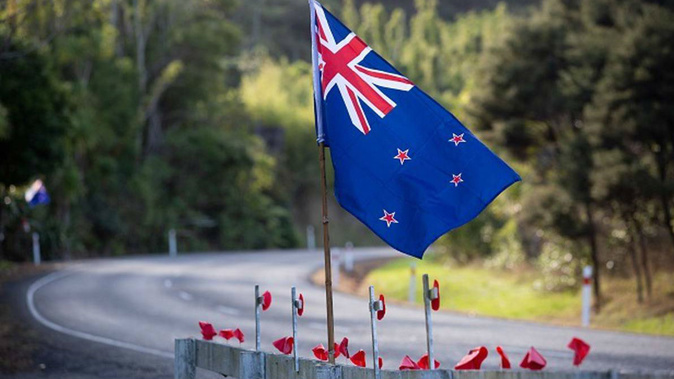
Anzac Day and its stories could be changed forever because of the lockdown.
Kiwis were asked to stand at their letterboxes, front doors, or in their lounges in place of cancelled Anzac commemorative services around the country due to Covid-19. Services began being cancelled in March, even before the alert level 4 lockdown had been announced.
Prime Minister Jacinda Ardern has made multiple references between the Anzacs and New Zealand's current situation.
"Over the decades it had become a time also to reflect on who we are as a nation, and the values that we stand for," she said in her Anzac Day address.
Similar sentiments were made on April 20, when Ardern announced the lockdown extension. She said the experience of the Anzacs "was a very different battle than the one we are in now, but the character of who we are as a country remains exactly the same".
Historians Tom Brooking and George Davis agreed public support and what is reflected on during Anzac Day has fluctuated since its inception.
Davis, who wrote his PhD on changes in Anzac Day perspectives, said "it's evolved quite enormously" while still maintaining its commemorative foundations.
"The statements made now are much more reflective … of a larger landscape that is changing."
Davis said "there's nothing wrong" with interpreting how Covid-19 changed Anzac this year as encouraging similar virtues are still held in New Zealand.
"In terms of a public sacrifice, it's a reasonable parallel."
He said part of its recent popularity, particularly for younger generations, was the opportunity to make a trip to Gallipoli. Events there were also cancelled this year.
Davis also said Anzac Day had increasingly become "a family affair", which included second-hand stories being told because "all the older folk who were in World War I, and almost all that were in World War II, have passed".
Brooking, an emeritus professor at Otago University, concurred there were changes in the telling of Anzac stories. He said there was always a risk stories could head into "mythical" territory as more generations passed. But Davis noted the commemorative services themselves had not changed much – it was what people talked about outside of them.
He said the lockdown could be a way for younger generations to resonate with the day on the basis of experiencing some shared characteristics and values of an Anzac.
Both Brooking and Davis were not sure there would have been comparisons drawn between Covid-19 and the Anzacs had the pandemic happened later in the year and not affected Anzac Day.
They also said it was important to recognise comparisons between lockdown life, and any sacrifices made, and Anzac Day are not direct comparisons, but metaphorical.
For Wellington College head boy, Andrew Latta, 17, this was the first year he had seen a shift in Anzac Day culture.
"I'm not sure whether that's completely a negative thing."
He found only being able to stand at his driveway a powerful reminder that New Zealand still "stands strong together as a community".
Latta said he thought younger people, who have grown up with technology, adopted the virtual services and commemorations easier.
"As youths, we are comfortable having that medium and integrating technology.
"Those new initiatives could be carried on into the future. This could be a shift towards a more digital, more personalised, commemoration – particularly for younger people."
Returned and Services' Association president BJ Clark conceded changes had benefits for the future. He said having people stand at home benefited those in New Zealand's older or vulnerable communities that might not be able to physically attend an Anzac service.
"This year they have been able to join in and I think that's something we should consider."
However, Clark said Anzac Day was too specific to be linked to anything else.
"I wouldn't like it to be coloured by anything else.
"There's a lot of emotion, there's a lot of passion … I'd be very concerned if there was too much distraction away from the real reason [of Anzac Day]."
He said it was very likely that people's experiences this year would be referenced in the future and would become part of the storytelling.
"But we shouldn't take away from what Anzac is all about."
Take your Radio, Podcasts and Music with you







